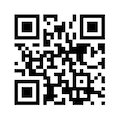
I actually won Learn Objective-C for Java Developers at the last Twin Cities Java User group meeting. The only stipulation for winning a free book is the expectation that we publish a review of the book online. This is a small task for a free book. Learning Objective-C has been on my todo list for several months anyway. Winning this book simply moved it higher on my priority list.
Review:

Pros:
- Many of the Objective-C examples were also shown with their Java counterpart. This added value in two regards. First, it clarified what the example was really doing. I could simply reference the Java version and quickly understand the Objective-C code. Secondly, it allowed me to compare and contrast the two languages. In many cases (but not all) the Objective-C examples contained fewer lines of code.
- In addition to the Java and Objective-C examples, the book also had many table-based comparisons for common features (data types, methods). For example, one page listed the Java data types and their Objective-C alternative including their size and range restrictions. Again this helped simplify the learning curve. The table-based charts were also used for common method declarations too. For example, the common String utility methods were shown side-by-side. One column showing Java's String utility method declarations and the other column showing the Objective-C alternative.
- Most code examples were a page or less. This helped simplify the learning process by allowing me to focus on more isolated code fragments.
Cons:
- Many books that teach a new programming language typically include exercises at the end of each chapter that the reader can take away and complete. This book did not have any. This is a minor complaint. I can definitely think of sample programs to write...
- The index does not always serve as a good reference for finding things quickly. For example, I wanted to find more information about logging and "logging" or "NSLog" were not in the index. Need to find the for loop quickly? You will not find it in the index. It is actually found in the index under "Collections, iterating through". The index could have been structured slightly better for quick search keywords.
- An Objective-C quick reference guide would have been helpful. This did not bother me too much because about the time I started reading this book DZone released a new Objective-C reference guide. I highly recommend it! In my previous "con" I mentioned that it can be painful to find certain topics (logging, data types, loops) quickly within the index. The DZone refcard provides quick access to those topics and more!
Summary
Overall this book is a very valuable resource for Java developers that want to learn the Objective-C language. The author greatly simplifies the Objective-C learning curve by contrasting many features and examples to its Java equivalent.





